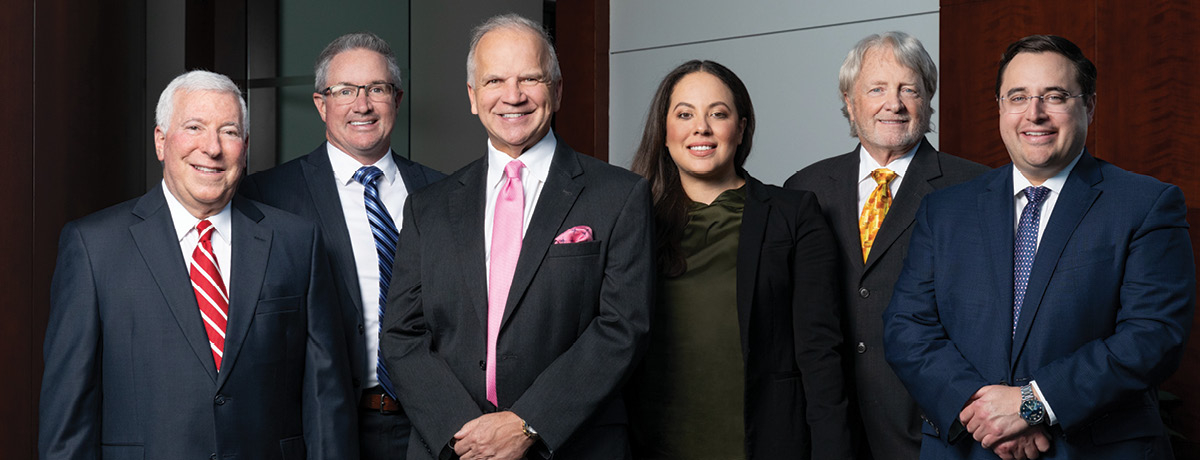With a population of 600, Sutherland Springs, Texas, was a picturesque, tranquil sort of rural American town. But that all changed on November 5, 2017, when a masked gunman entered the First Baptist Church of Sutherland Springs and opened fire with an AR-556 semi-automatic rifle, killing 26 and injuring 22 others before ending his own life after a brief chase.
The mass shooting was the deadliest of its kind in Texas history and became the fifth-deadliest in the U.S. It was also the deadliest shooting in an American place of worship. Investigations revealed that the shooter had a well-documented history of making threats of physical violence, researching methods of carrying out violence and a conviction for assaulting his wife and infant stepson.
Despite mandatory reporting requirements, the United States Air Force (USAF) failed to report the shooter’s history of violence to the FBI database, which allowed him to purchase the AR-556—a weapon of war—from a federal firearms licensee. That would not have occurred if the USAF had done its due diligence.
There are reasonable restrictions that can be passed to prevent the wrong people from committing these tragedies."
Having rightfully concluded the USAF authorities had failed to properly report to the National Instant Criminal Background Check System (NICS), the more than 75 victims and their families turned to the nation’s best legal minds to file suit against the government—one of whom was Tinsman & Sciano co-founder and CEO Daniel J.T. Sciano. Sciano was a natural choice as an advocate. In Texas, only 1.1% of licensed lawyers are double board-certified; Sciano is five times board-certified, with two certifications in the areas of personal injury trial law and civil trial law by the Texas Board of Legal Specialization and three certifications by the National Board of Trial Advocacy for civil trial, civil practice and truck accident law.
“Emotions were high, but we approached the case with manageable expectations, especially since the federal government cannot be held liable for gross neglect,” says Sciano, who Best Lawyers® named as the San Antonio “Lawyer of the Year” in 2010 and 2012 for Personal Injury Litigation–Plaintiffs. “Evidence showed a flagrant disregard for proper reporting, and any other entity would have been found guilty of gross neglect for what happened.”
NICS was designed to prevent convicted criminals from purchasing or possessing firearms. Sciano notes that though the shooter voluntarily admitted himself into a mental health facility and discussed his intent to commit mass violence, he exploited the law that did not (and still does not) mandate that information be conveyed to the FBI database—a gaping loophole in the regulations designed to combat gun violence. These loopholes added to the flagrant errors that permitted the shooter to buy the weapon used in the massacre.
Given the enormity of the crime and the highly charged debate on access to guns, Sciano’s mission was twofold: To ensure that clients were fully compensated for all physical and emotional damages and the loss of life authorized by the Federal Tort Claims Act (which allowed the suit against the government), and to push for legislative changes that will reduce the risk of another catastrophe.
“This case puts a spotlight on the cadre of loopholes of the NICS,” he says. “Preservation of life is a bipartisan issue. Legislators who truly want to ensure the safety of their citizens need to take action that closes this loophole and others and provides the funding to enforce gun laws on the books.”
In February 2022, a federal district court judge issued a remarkable $230 million verdict and ultimately ruled that the Air Force was 60% responsible for the shooting in the civil trial, as evidence showed the military branch failed to report thousands of violent felons to NICS. The government appealed, and in April 2023, a tentative settlement was announced for $144.5 million.
Sciano noted that the original verdict underscored the need to close more legal loopholes related to guns, why reporting requirements should be more carefully monitored and that even the government can be held accountable for bad conduct in not doing its part in combatting gun violence.
“We all agree that the people who have these mental health issues should not have access to guns. But the shooter knew how to play the system, and so do others out there,” Sciano says. “That is truly dangerous. There are reasonable restrictions that can be passed to prevent the wrong people from committing these tragedies with weapons of war to which they should never have access. We need to do more. Our children deserve it.”




























